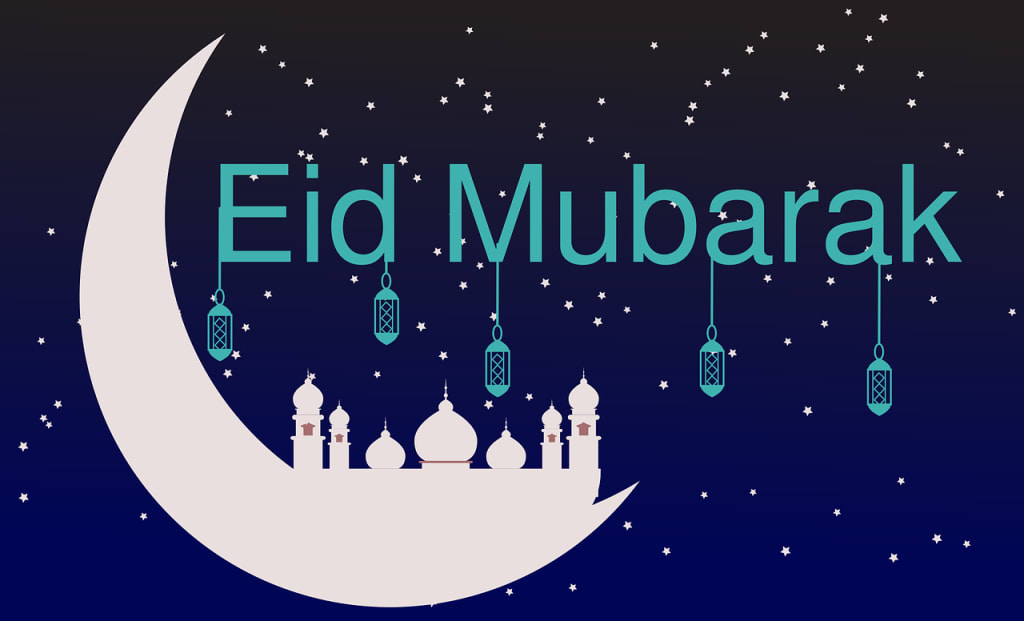The Message of Tolerance, Brotherhood, and Love on Eid-ul-Fitr: Embracing Unity and Compassion
Highlighting the Importance of Eid and Caring for the Poor as a Pathway to Unity and Peace

Once upon a time, in a small village in the heart of a Muslim country, there lived a man named Ahmad. Ahmad was a kind and generous man who always made an effort to help those in need. He was respected and loved by everyone in the village, regardless of their religion or background.
Ahmad was a devout Muslim, and he looked forward to Eid-ul-Fitr every year. He loved the festive atmosphere, the special meals, and the time spent with family and friends. But more than anything, Ahmad cherished the message of tolerance, brotherhood, and love that was at the heart of Eid-ul-Fitr.
One year, as Eid-ul-Fitr approached, Ahmad decided to do something special. He wanted to share the message of Eid-ul-Fitr with everyone in the village, especially those who were less fortunate. So, he invited all of the poor and needy families in the village to his house for a special Eid feast.
Ahmad spent weeks preparing for the feast. He cleaned his house from top to bottom, decorated it with colorful lights and ornaments, and bought new clothes for himself and his family. He also purchased large quantities of rice, meat, and spices to make the special dishes he had planned for the feast.
On the day of Eid-ul-Fitr, Ahmad woke up early in the morning, took a shower, and put on his new clothes. He then went to the mosque to offer the special Eid prayer, along with his family and friends.
After the prayer, Ahmad returned home and started cooking the special dishes he had planned for the feast. The delicious aroma of the food filled his house, and the sound of laughter and joy could be heard from miles away.
As the sun began to set, the poor and needy families started arriving at Ahmad's house. They were all dressed in their best clothes, but their faces showed signs of poverty and hardship. Ahmad welcomed them with open arms, greeting them with hugs and warm smiles.
The guests were amazed by the decorations and the food. They had never seen anything like it before. They sat around a large table, and Ahmad served them the special dishes he had prepared. The food was delicious, and the guests ate to their heart's content.
As they ate, Ahmad talked to the guests about the message of Eid-ul-Fitr. He reminded them of the importance of tolerance, brotherhood, and love, and how these values were at the core of their faith. He also reminded them of the importance of loving and caring for the poor and needy, and how this was an essential part of their religion.
The guests listened intently to Ahmad's words, and they felt touched by his kindness and generosity. They realized that the message of Eid-ul-Fitr was not just about feasting and celebration, but it was also about sharing and caring for others.
As the night wore on, the guests continued to enjoy the food and the festive atmosphere. They danced and sang to the beat of traditional music, and they laughed and joked with one another. They felt united, despite their differences, and they felt grateful for Ahmad's hospitality and generosity.
As the guests started to leave, Ahmad hugged each one of them, wishing them a happy Eid-ul-Fitr. He also gave them a small amount of money as a gift, so that they could buy something special for themselves and their families.
The guests left Ahmad's house feeling grateful and happy. They realized that Eid-ul-Fitr was not just a time for feasting and celebration, but it was also a time for sharing and caring for others. They promised to spread the message of tolerance, brotherhood, and love in their own communities, and to help those in need whenever they could.
From that day on, Ahmad's Eid feast became an annual tradition in the village. Every year
, Ahmad would invite the poor and needy families to his house for a special Eid feast, and he would remind them of the importance of the message of Eid-ul-Fitr. The feast became a symbol of unity and brotherhood in the village, and it brought people of all backgrounds and religions together.
Over time, Ahmad's message of tolerance, brotherhood, and love started to spread beyond the village. People from neighboring villages and towns heard about Ahmad's Eid feast, and they came to see it for themselves. They were inspired by Ahmad's generosity and kindness, and they wanted to learn more about the message of Eid-ul-Fitr.
Ahmad welcomed everyone with open arms, regardless of their religion or background. He shared his knowledge and his experiences with them, and he encouraged them to spread the message of tolerance, brotherhood, and love in their own communities.
As word of Ahmad's message spread, more and more people started to embrace it. They started to realize that the message of Eid-ul-Fitr was not just for Muslims, but it was a universal message of love and compassion that could bring people together.
The message of tolerance, brotherhood, and love that Ahmad shared on Eid-ul-Fitr had a profound impact on the people in the village and beyond. It brought them closer together, and it helped them to see beyond their differences. They realized that they were all human beings, and that they all had the same hopes and dreams for themselves and their families.
In the end, Ahmad's message of tolerance, brotherhood, and love became a shining example for people everywhere. It showed them that no matter who they were or where they came from, they could all come together and share in the joys and blessings of life.
As the years went by, Ahmad continued to host his annual Eid feast, and he continued to share his message of tolerance, brotherhood, and love with everyone he met. His legacy lived on long after he passed away, and his message continued to inspire people around the world.
And so, the message of Eid-ul-Fitr remains as relevant today as it ever was. It reminds us that we are all brothers and sisters, and that we should treat each other with kindness, compassion, and respect. It reminds us to love and care for the poor and needy, and to help those who are less fortunate than ourselves.
Most importantly, it reminds us that we are all part of a larger community, and that we have a responsibility to work together to make the world a better place. So, as we celebrate Eid-ul-Fitr this year and in the years to come, let us remember the message of tolerance, brotherhood, and love, and let us strive to make it a reality in our own lives and in the world around us.
About the Creator
muhammad nadeem naqvi
Naqvi is a renowned writer and journalist from lahore, Pakistan. He has written several critically acclaimed books on social issues and has been recognized with several awards and honors for his work.






Comments
There are no comments for this story
Be the first to respond and start the conversation.